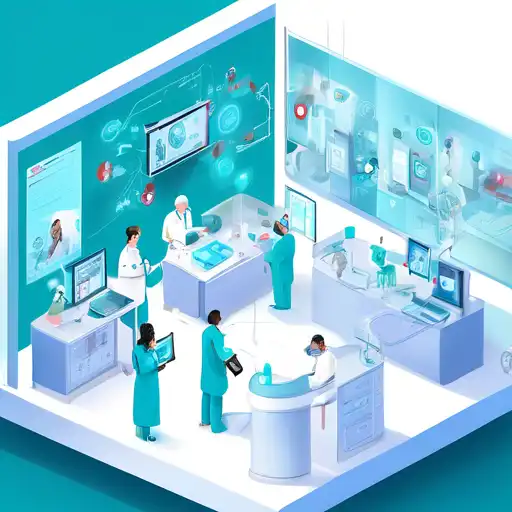Introduction to IoT in Healthcare
The Internet of Things (IoT) is revolutionizing industries worldwide, and healthcare is no exception. By integrating IoT devices into medical services, healthcare providers can offer more personalized, efficient, and effective care. This article explores the transformative role of IoT in healthcare, highlighting its benefits, applications, and future potential.
Benefits of IoT in Healthcare
IoT technology brings numerous advantages to the healthcare sector, including:
- Enhanced patient monitoring through wearable devices
- Improved accuracy in diagnostics and treatment plans
- Reduced healthcare costs by minimizing unnecessary hospital visits
- Increased accessibility to healthcare services, especially in remote areas
Key Applications of IoT in Medical Services
IoT is being utilized in various ways to improve healthcare services. Some of the most impactful applications include:
- Remote Patient Monitoring: Wearable devices collect vital health data in real-time, allowing doctors to monitor patients' conditions without requiring physical presence.
- Smart Hospitals: IoT devices automate and streamline hospital operations, from inventory management to patient care, enhancing efficiency and reducing errors.
- Personalized Medicine: By analyzing data collected from IoT devices, healthcare providers can tailor treatments to individual patients' needs, improving outcomes.
- Emergency Response Systems: IoT-enabled devices can detect emergencies, such as falls or heart attacks, and automatically alert medical personnel.
Challenges and Considerations
Despite its benefits, the integration of IoT in healthcare faces several challenges, including data security concerns, the need for interoperability among devices, and the high cost of implementation. Addressing these issues is crucial for maximizing the potential of IoT in healthcare.
The Future of IoT in Healthcare
The future of IoT in healthcare looks promising, with advancements in AI and machine learning further enhancing the capabilities of IoT devices. As technology evolves, we can expect even more innovative applications that will continue to transform healthcare services.
For more insights into how technology is shaping the future of healthcare, explore our articles on digital health trends and AI in medicine.
Conclusion
IoT is playing a pivotal role in improving healthcare services, offering benefits that range from enhanced patient care to operational efficiencies. While challenges remain, the potential of IoT to revolutionize healthcare is undeniable. As we move forward, the continued adoption and innovation in IoT technology will undoubtedly lead to even greater advancements in medical services.
